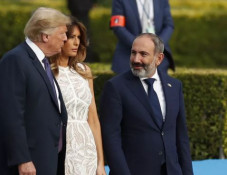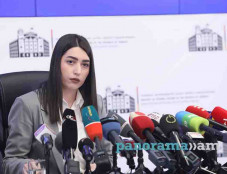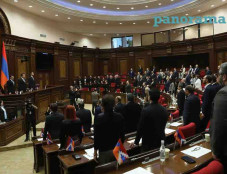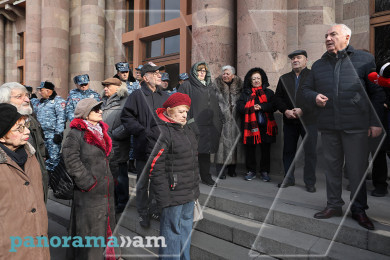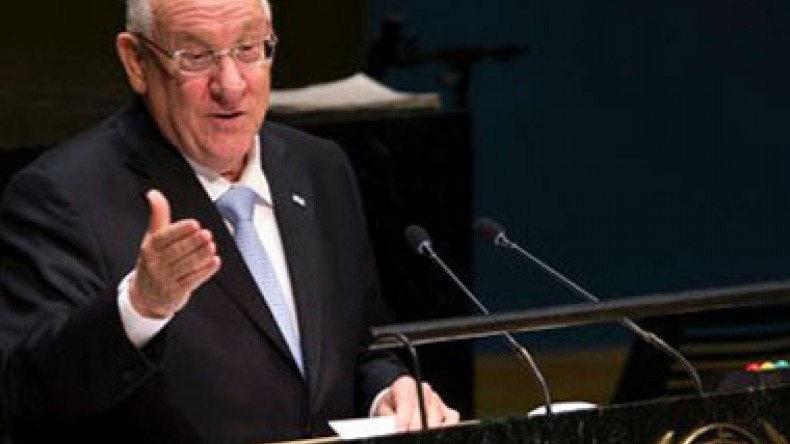
Did Israel’s President recognize the Armenian Genocide at the UN?
In remarks in front of the General Assembly on Wednesday, Israel’s President Reuven Rivlin seems to have recognized the Armenian Genocide, Asbarez reports.
As the Israeli newspaper Haaretz reported, Rivlin recognized the Armenian Genocide during the General Assembly’s Holocaust memorial while he was defending Israel against what he called “cynical” accusations of genocide and war crimes in his country’s dealing with Palestinians.
Rivlin called on the UN to set boundaries beyond which it would intervene to stop acts of genocide. He then said:”At the same time we must remember that the setting of red lines requires us to stop diluting and cynically exploiting them in the name of pseudo objectivity, as is done in the rhetoric of human rights with the use of terms such as ‘genocide’ for political purposes,” reported Haaretz.
“Nonetheless, absurd comparisons… which we as Israelis are exposed to constantly… not only confuse the ally with the enemy, but they undermine this house’s ability to effectively fight the phenomenon of genocide,” said Rivlin according to Haaretz.
Yaron Weiss, an Israeli human rights activist and an advocate of Genocide recognition, shared with Asbarez a translation, by Yoav Loeff, of Rivlin’s remarks, which were made in Hebrew at the UN General Assembly.
Rivlin said: “In 1915, the days of the Armenian Genocide, Avshalom Feinberg of the NILI underground [A Jewish spy network in Ottoman Palestine] wrote the following: ‘My teeth have been worn away by anger, who is next? I have walked on sacred and holy ground, on the road to Jerusalem, and asked myself if it is this time that we live in—1915–or in the days of Titus or Nebuchadnezzar? And I asked myself whether I may cry for the hurt of the daughter of My people alone and if Jeremiah did not shed his tears of blood also for the Armenians?’”
Rivlin added: “Feinberg wrote that exactly 100 years ago. 100 years of hesitation and denial. In the Land of Israel of the time, in which I was born, no one denied the murder that occurred. The residents of Jerusalem, my parents, saw them coming by thousands, starving, burning sticks snatched from the fire. In Jerusalem they found refuge and their descendants live there to this day.”
However, he concluded his remarks with the following statement: “On this day we must ask ourselves honestly, is our struggle, the struggle of this Assembly, against genocide, effective enough? Was it effective enough then in Bosnia? Was it effective in preventing the killing in Khojaly?”
In December, Asbarez, citing Israeli sources, reported that Rivlin, once an outspoken advocate of Israel’s recognition of the Armenian Genocide, decided not to renew his signature on an annual petition calling for Israel to officially recognize the mass killings as Genocide.
Newsfeed
Videos





